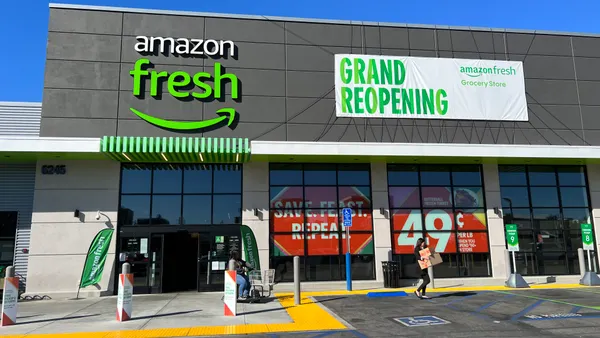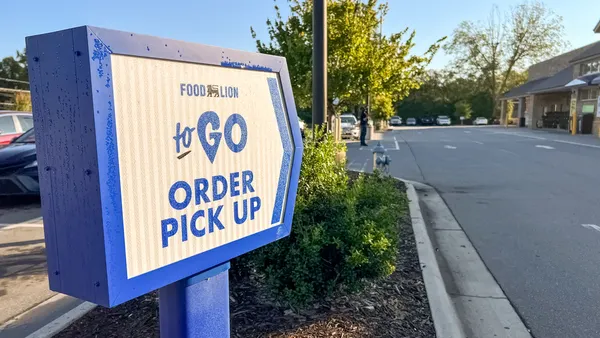Dive Brief:
- Less than a year into its contract with Walmart, grocery delivery service provider Skipcart is parting ways with the retailer at some point in March, according to Bloomberg. The company first notified Walmart on Jan. 31 that it would severing ties effective April 30, but that date has since been pushed up.
- Skipcart serviced 126 Walmart stores in 32 states, making about 50,000 deliveries per month in smaller markets. Since the warning letter, Walmart has reassigned Skipcart’s stores to its other delivery providers.
- Skipcart’s CEO Ben Jones told Bloomberg the company was losing money “hand over fist” working with Walmart and it would put more resources into restaurant deliveries, which are more profitable and easier than groceries. “The grocery model does not work,” Jones told Bloomberg in an interview. “It doesn’t work today, and it’s not going to work six months from now. We’re all losing money.”
Dive Insight:
Walmart suffered another setback in its grocery e-commerce strategy as major competitors like Amazon, Kroger and Target continue to make progress in the space.
The retailer already lost Uber and Lyft as partners in 2018 and Deliv around this same time last year. Deliv complained that drivers would have to wait 40 minutes or longer to receive orders from stores, drive long distances to deliver orders and certain markets had low order volumes — all cutting into its profitability.
On top of that, legislations are being proposed and enacted to protect contract workers by requiring gig companies like Instacart, Lyft or Uber to offer guaranteed minimum wage, access to health insurance and other benefits.
Deliv’s claims, along with Walmart’s issues with multiple service providers, also bring to light the ongoing battle with last-mile delivery in the grocery space that includes inefficiencies, transportation costs and traffic.
Currently Walmart offers home delivery from about 1,600 stores using companies like Postmates, DoorDash, Roadie and Point Pickup. The fee varies depending on delivery time, but ranges from $7.95 to $9.95 per order as long as a $30 minimum is reached, or unlimited free delivery for $12.95 a month or $98 a year. Meanwhile, competitor Amazon delivers orders for free above $35 with a Prime membership. Walmart is also testing driverless delivery to combat last-mile delivery issues and has its own platform Spark that delivers in 31 states. It also offers pickup at 3,100 of its stores.
While Walmart may have its top-notch pickup service to fall back on, having a strong delivery service is vital to grow its reach. Currently, Walmart has a 22% share of the $847 billion U.S. grocery sector, analyst Andrew Wolf told CNBC. It’s also a key area for the retailer’s financial health. Grocery makes up a large portion of its U.S. sales and is the driving factor behind its same-store sales growth.














